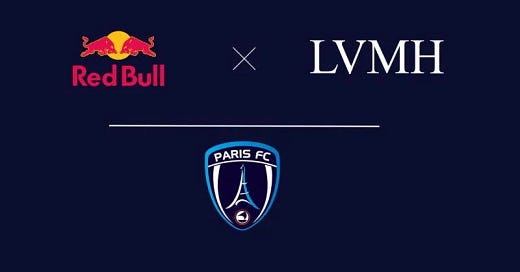Paris FC x LVMH: The Luxury Giant Shaping the Future of Parisian Football
Can Paris FC Challenge PSG's Dominance with LVMH's Backing?
For years, Paris Saint-Germain (PSG) has dominated the footballing conversation in the French capital. With their Qatari-backed riches and a galaxy of superstars like Lionel Messi, Neymar, and Kylian Mbappé gracing the Parc des Princes, PSG has embodied Parisian glamour and global footballing ambition.
But quietly, in the shadow of their towering presenc…
Keep reading with a 7-day free trial
Subscribe to Original Football to keep reading this post and get 7 days of free access to the full post archives.




